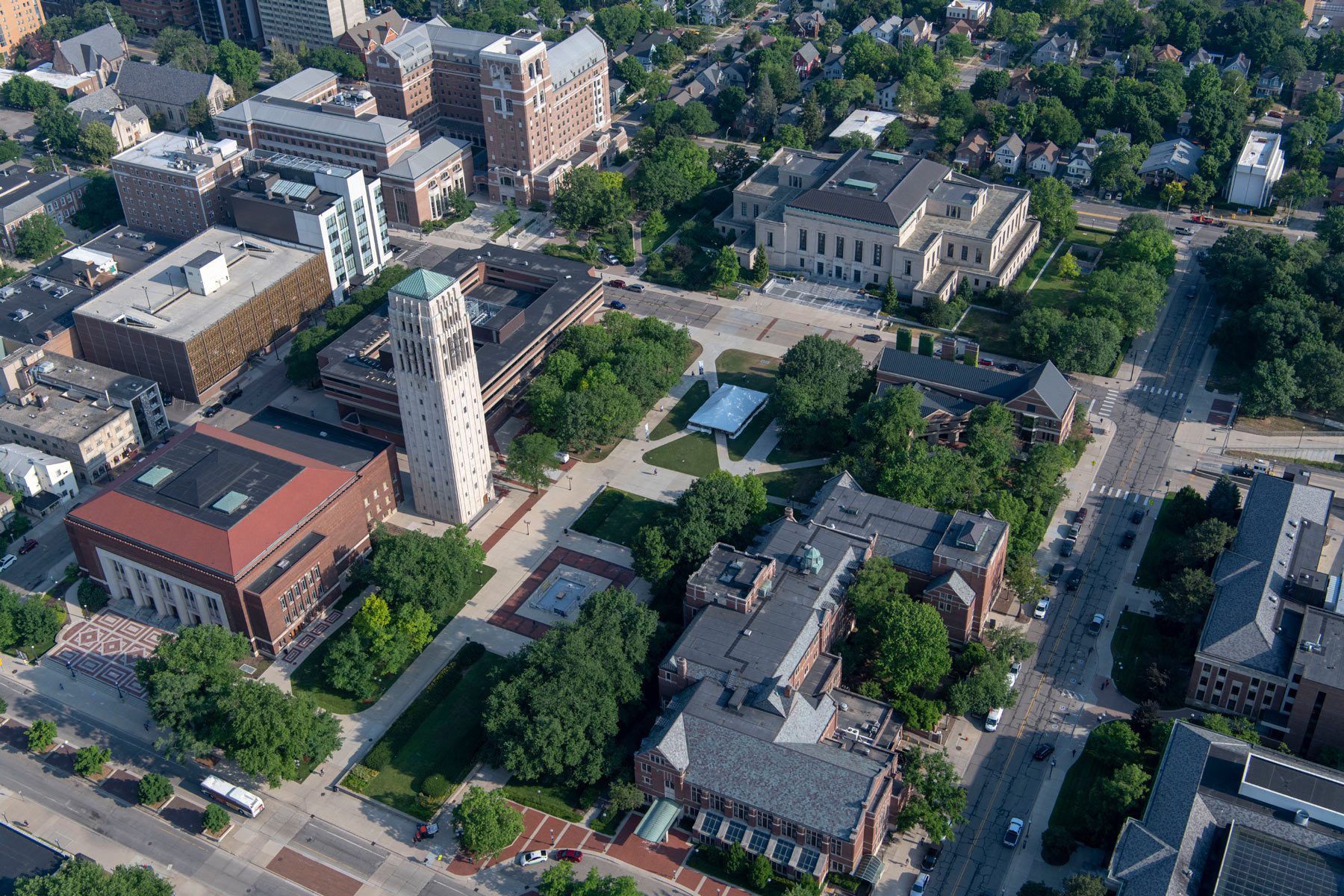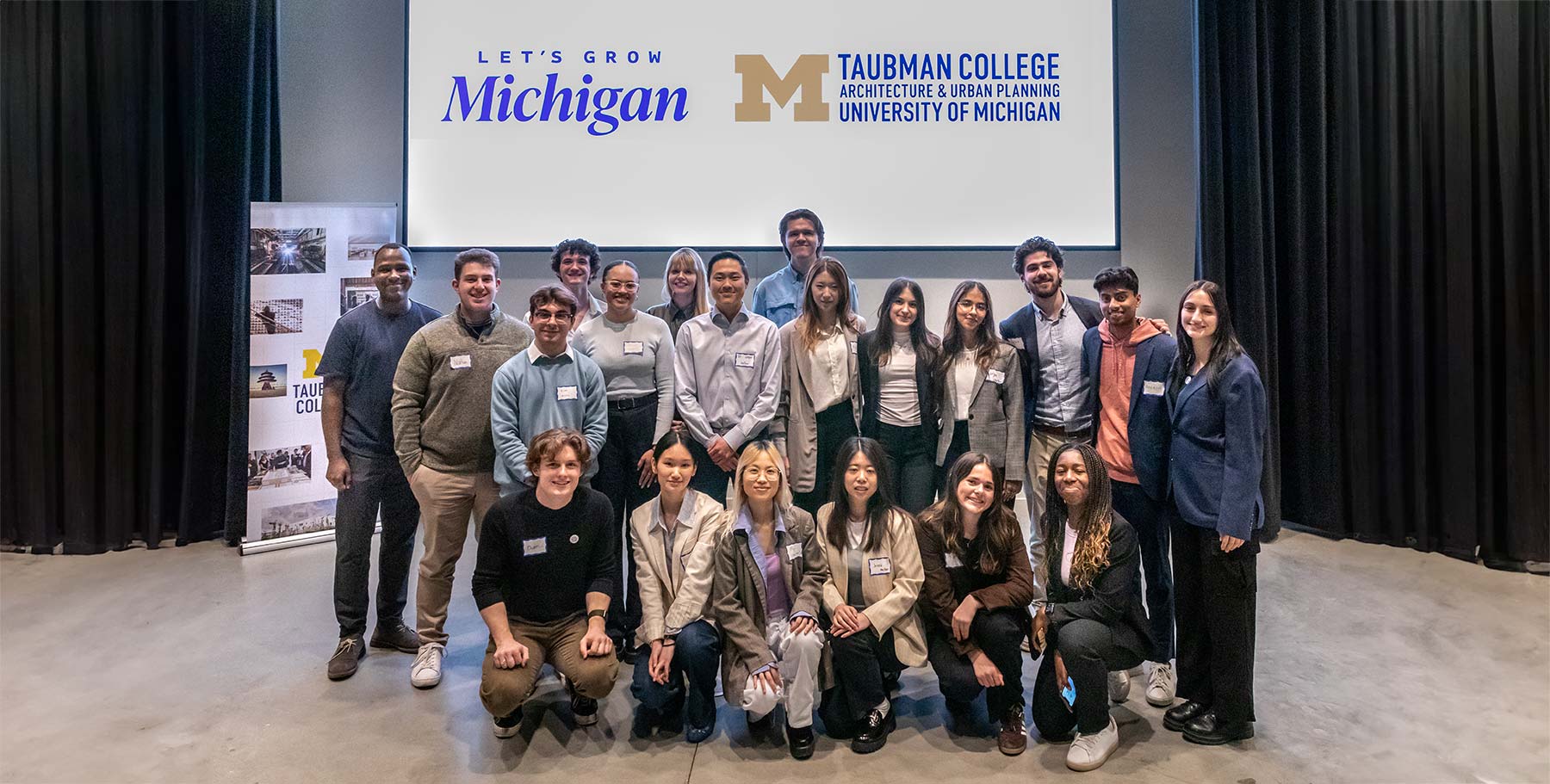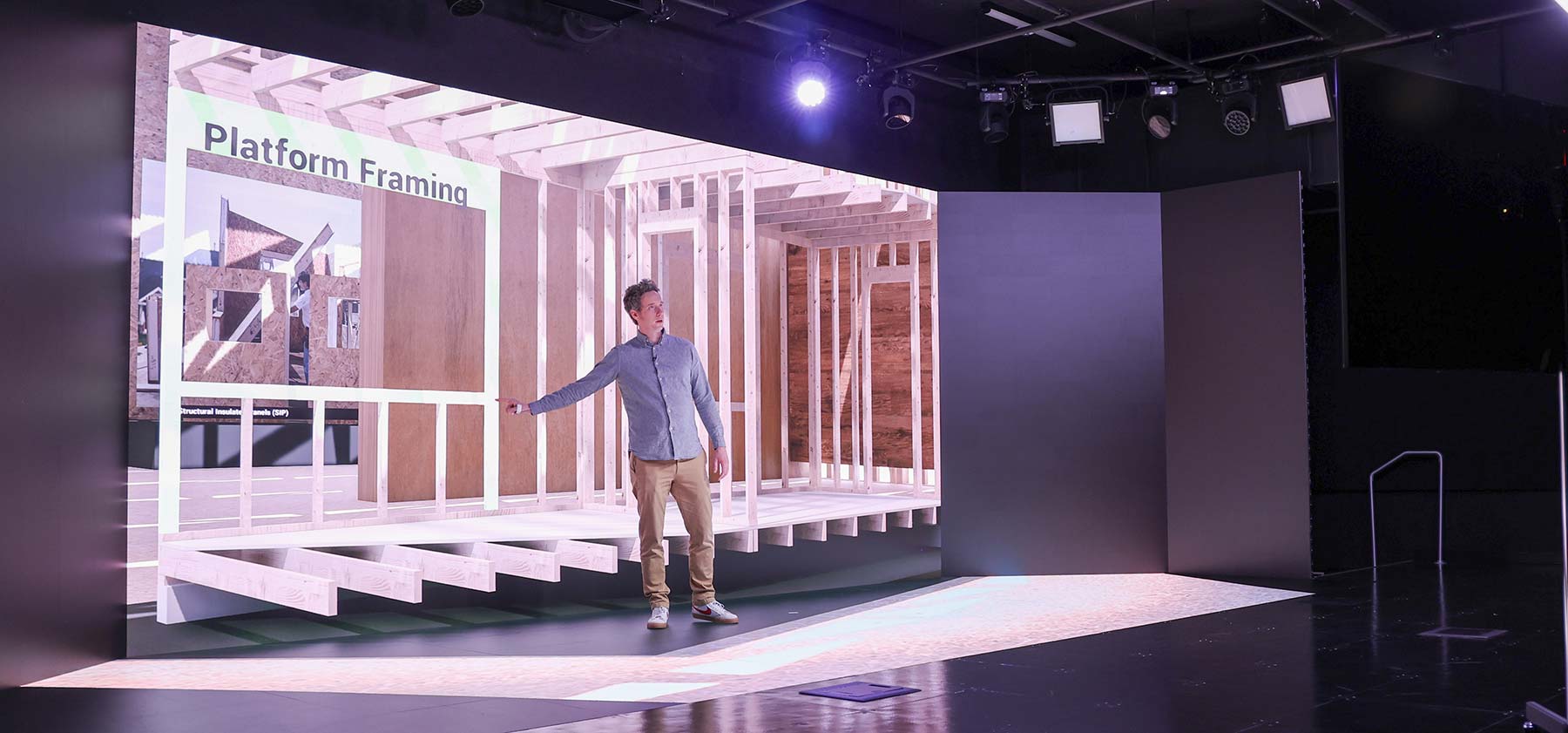Members of the Taubman College community will participate in two university-wide fellowship programs in the coming academic year.
A cohort of eight U-M faculty members, including two from Taubman College, and eight graduate students, including a Ph.D. student at Taubman College, will be fellows at the Institute for Humanities during the 2020–2021 academic year. The Institute for the Humanities facilitates work that examines humanities traditions broadly across space and time; deepens synergies among the humanities, the arts, and disciplines across the university; and brings the humanities to public life. The fellows will form an intellectual community while pursuing original research and participating in regular, cross-disciplinary fellows’ seminars.
Fellowship recipients represent diverse disciplines within the humanities and span several colleges and schools across the university, this year including UM-Dearborn, the School of Information, the Penny W. Stamps School of Art and Design, and the College of Literature, Science, and the Arts, in addition to Taubman College.
The Taubman College representatives and their research projects are:
Matthew Lassiter, associate professor of urban and regional planning
“Deadly Force: Documenting and Mapping Police Violence and Misconduct in Detroit”
Ana María León, assistant professor of architecture and assistant professor of history of art, romance languages, and literatures
“NO SMALL ACTS: Counter-Institutions in Brazil, Chile, and Argentina, 1959-1983”
Alaa Algargoosh, Ph.D. candidate in architecture
“Aural Architecture as Affect: Understanding the Impact of Mosques’ Acoustics on the Worshipper’s Experience”
U-M’s Center for Academic Innovation has named 18 faculty members as the inaugural recipients of the Public Engagement Faculty Fellowship. In collaboration with units across campus, the fellows will complete an intensive studio experience in which they will meet as a group and with experts across campus to build skills, develop relationships, and share experiences to engage the public.
The cohort includes nine fellows eager to explore and build their skills, and nine mentor fellows with more experience in public engagement. They represent departments across U-M, including nearly a dozen schools and colleges.
Margaret Dewar, professor emerita of urban and regional planning, will serve as a mentor fellow. She has distinguished herself throughout her career with collaborative research in the broad areas of economic development, housing and community development, urban environmental planning, and urban land use.
Learn more about the Institute for Humanities Fellowship here.
Learn more about the Public Engagement Faculty Fellowship here.





